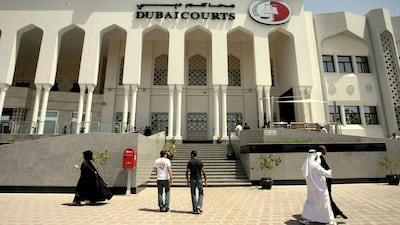An enlightened judicial system moves with the times. It is one that evolves organically when necessary to keep pace with a changing society. The UAE's leadership, for its part, has consistently sought to adapt its courts to reflect the changing economic and social times. This week's decision to overhaul Dubai's court system and cut trial times is no exception. It is certain to reduce costs and streamline the prolonged proceedings that can see defendants have to wait months and sometimes years to face trial. The new C3 system will be introduced within two years alongside a move to halve legal fees, to ensure more people get the representation they deserve. But speed is not the pinnacle of a robust justice system. Many cases are too complex to be handled in 30 days and in such cases, it behoves judges to put fairness and due process before expediency.
Currently, cases in Dubai take an average of about 10 months to conclude. Each case can be heard by up to 11 judges across three separate courts. It is a drawn-out system, laced with complexity, that can see defendants trapped in opaque legal cycles. The C3 system – subject to the drafting and approval of a new law – will cut the number of judges to three, with the courts of first instance, appeal and cassation running concurrently over a one-month period. There are concerns about the impact it will have on the ability of defendants to appeal sentences. The move follows shrewd recent legal changes, including the decision last November to hand fines rather than prison time to those who bounce cheques. In addition, one-day courts in Dubai and Abu Dhabi are already handling minor cases, many of which are now punished with community service, easing pressure on the UAE's prisons. Ultimately, the cornerstone of a progressive judicial system should be fairness and equality. While modifications to increase efficiency and reduce costs are very welcome, steps should be taken to ensure they should not come at the expense of that core principle.

